Encapsulating volatile substances – Product optimization with artificial neural networks (German article)
Case Study: Food and feed products have to be developed with a focus on high yields of active ingredients and low formulation costs at the same time. As a typical industrial application, the encapsulation of volatile substances, e.g. flavors or PUFAs (polyunsaturated fatty acids), into dense and free-flowing granules is explained in this paper. This process improves storage stability, protects the products from oxygen and can be carried out with a continuously operating spouted bed apparatus. (aticle in German language)
- Author: Dr. Michael Jacob, Head of Process Technology Food, Feed & Fine Chemicals, Glatt Ingenieurtechnik GmbH
- originally published in the trade magazine ‘Lebensmitteltechnik’, issue 11/2009, LT Food Medien-Verlag GmbH
Further information on this topic and related topics can also be found in the following publications:
Published article: ‘How to Tame Recalcitrant Ingredients with Technological Processes’ PDF, English
Published article: ‘The gentle processing of highly volatile oils by fluid bed and spouted bed technology’ PDF, English
Published article: ‘Contract manufacturing by fluid bed and spouted bed technology: Which is better, continuous or batch process?’ PDF, English
Published article: ‘Spray (micro)encapsulation of sensitive substances in matrix form – An overview of essential oil and vitamin case studies’ PDF, English
Published article: ‘Full Flexibility with Spouted-Bed – Glatt’s ProCell continuous spouted-bed equipment makes high-quality granulates and pellets’ PDF, English


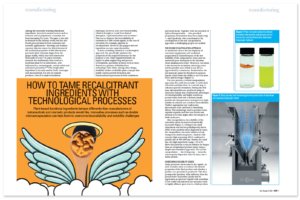
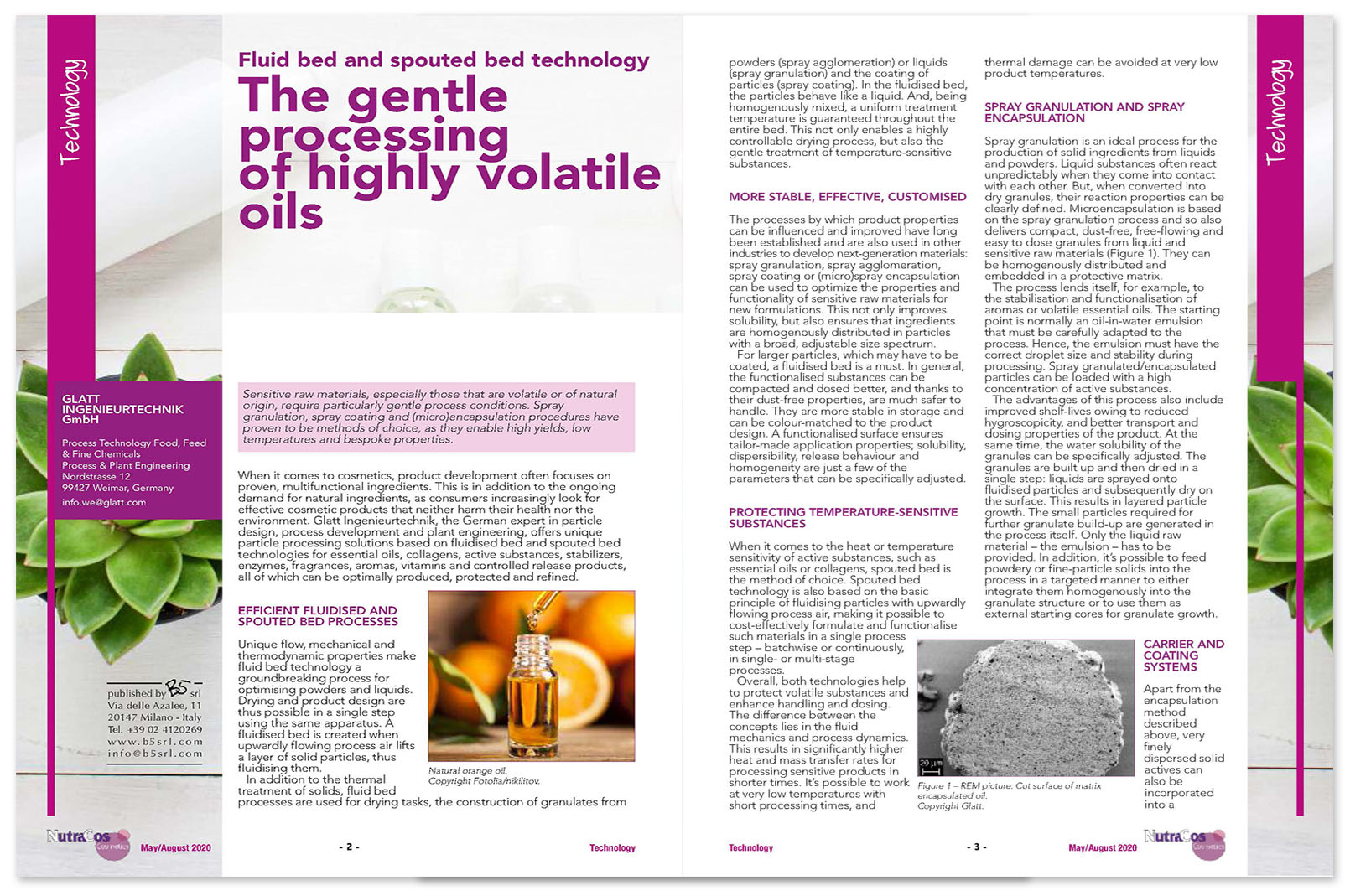
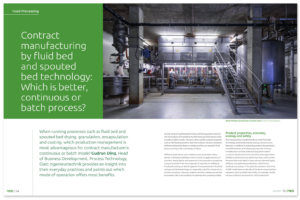
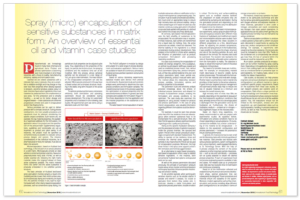
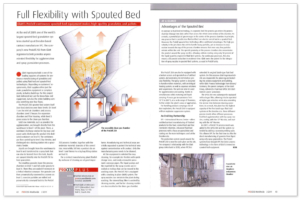
 Copyright: publish-industry Verlag GmbH
Copyright: publish-industry Verlag GmbH Copyright: VOGEL Communications Group GmbH & Co. KG
Copyright: VOGEL Communications Group GmbH & Co. KG